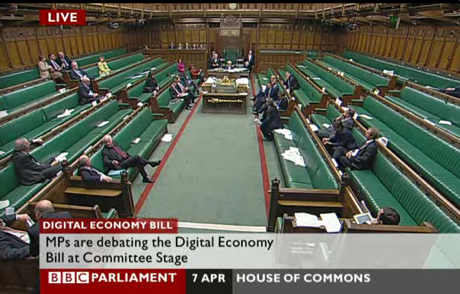It’s been over 6 months since I wrote my summary of the Digital Economy Bill, and my thoughts on it. Since then the last breaths of the Labour government successfully pushed this through, and it became the Digital Economy Act.
So here’s where we are now. Communications minister Ed Vaizey has said that government expect the DEA to “benefit our creative economy by £200 million per year”. Ofcom are currently working on their Initial Obligations Code, which will outline how fans will be notified of their illegal activity. However, because the Coalition have announced that Ofcom are to face cuts of £30million, I expect that this could be delayed, having already had its initial deadline of December pushed back to March 2011. This code is the central factor that will determine if the monetary gain mentioned above will materialise, and is vitally important.
The expected arguments over who pays for this procedure have been and gone. The ISP’s will pay 75%, and the rights holders (record labels) pay 25%. The ISP’s had to pay a share of the costs so that they had an incentive to keep the procedure smooth and cost effective. Considering that the labels stand to win the most from this financially, and the ISP’s will have to repeat this procedure for several other industry’s (Film, TV, Book publishing), this is a great result for the Rights Holders (though of course they condemned it, creating yet more negative feelings towards them).
When the letters are sent, information detailing how to avoid future detection will be EVERYWHERE. News of the DEA will be all over mainstream media, and it will also be the main topic of discussion in playgrounds, colleges, universities, offices, online forums and social media. Avoiding future detection is a simple process that takes just a few minutes to do, and there will also be p2p services that protect your identity for you, who will advertise themselves appropriately. The letter CANNOT drive casual file sharers to take this route. In doing so, they are changing from fans who d/l because it’s easy, to fans that are actively educating themselves on how to avoid the law. Once this decision is made, getting them back to legal services will be almost impossible.
The UK must learn from other country’s mistakes. In Sweden, P2P traffic decreased immediately after a similar law arranged for the sending of letters, but steadily rose again once fans realised nothing would happen if they continued, which is why there will be threats of bandwidth restriction or temporary disconnection in the DEA letter. The French have sent this email (though I don’t speak French and can’t say for sure what it says!) to offenders based on the Hadopi Law, but can someone PLEASE show me where the list of alternative legal services are? I have no doubt that this email did far more harm than good, as very few fans would have switched to legal services because of it.
In my next post, I will explore exactly what I think these DEA letters should say, and why. I bet you can’t frickin’ wait.
UPDATE : Yesterday (10th November) it was announced that BT and TalkTalk have been granted the right to a judicial review, essentially meaning that the High Court will check that the Act complies with EU law. TalkTalk regulation chief Andrew Heaney claimed that, “The provisions to try to reduce illegal filesharing are unfair, won’t work and will potentially result in millions of innocent customers who have broken no law suffering and having their privacy invaded.” It’ll delay the implementation of the bill, but only time will tell how long this delay will be.


 Farewell
Farewell  Part 2 : How Spotify Can Embrace Active Sharing
Part 2 : How Spotify Can Embrace Active Sharing  Part 1 : Why Spotify’s Social Strategy is Fundamentally Flawed
Part 1 : Why Spotify’s Social Strategy is Fundamentally Flawed  How Google Play can forge a new Music Industry
How Google Play can forge a new Music Industry  Gotye - Making Mirrors
Gotye - Making Mirrors  What Do Music Fans Want To Own, and Why?
What Do Music Fans Want To Own, and Why?  Early Spring Till by Nathaniel Rateliff
Early Spring Till by Nathaniel Rateliff 


No Comments